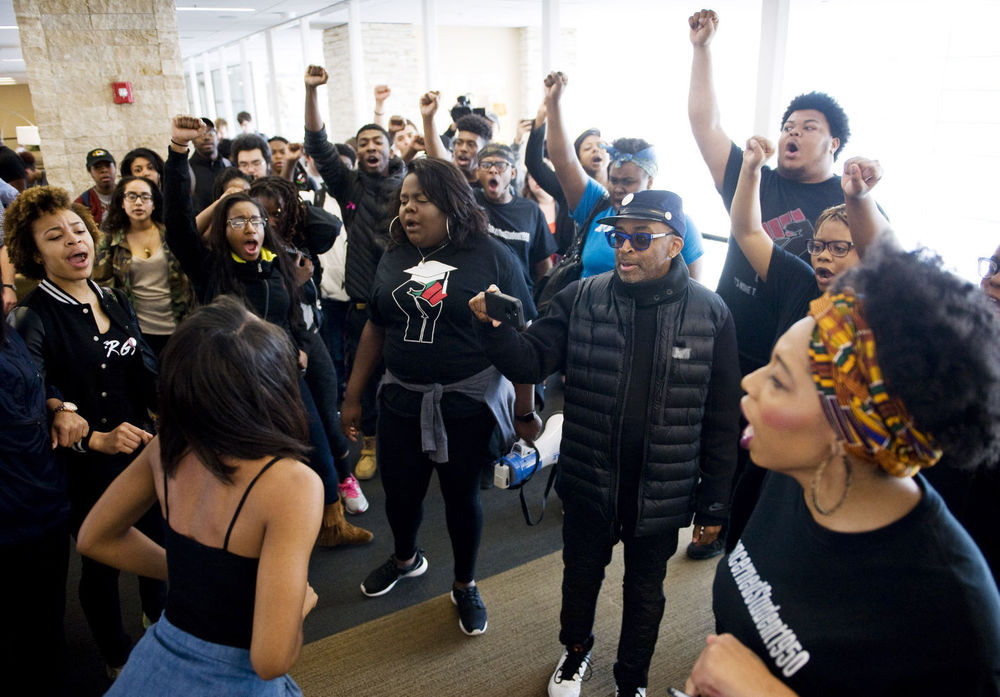
Essential Doc Reads is a weekly feature in which the IDA staff recommends recent pieces about the documentary form and its processes. Here we feature think pieces and important news items from around the Internet, and articles from the Documentary magazine archive. We hope you enjoy!
The Los Angeles Times' Steven Zeitchik reports from True/False on four venturesome trends in the documentary form.
These new anti-documentaries are in a sense more fundamental shifts, since they're crafted as feature films, sometimes with scripts to match. But their issues are also more complicated, since they're not claiming to be wholly true in the first place — if anything, by being made in this way, they're questioning the form as a whole. With other filmmakers sure to follow their lead, get ready for more such films — and more such slippery questions.
From the New Day Films blog, Briar March talks to four filmmakers about their work on gender equality and how it's relevant today:
The history of New Day Films is very much entwined with that of the women's movement. In 1971, our documentary cooperative was born when a small group of feminist filmmakers decided to band together to distribute their films—films that had been deemed too controversial for traditional distributors. As we celebrate Women's History Month this year, there is no better time to contemplate some of the issues [Pat] Ferrero and the other filmmakers have raised. How can we best engage men in the feminist movement? And how can we educate young people about not only the rich history of past women's movements but also the current issues still facing us in America and abroad?
Truthout's Mike Ludwig talks to filmmaker Josh Fox about fracking, global warming and his latest film, How to Let Go of the World and Love All the Things Climate Can't Change.
"When you really study climate change, you have to reconcile yourself with that very bleak picture, and it's really hard. And that's what the movie does. I mean the movie sort of rams into the brick wall of climate change at 100 miles an hour.
I think I walk into the question very similarly to the way I do with Gasland, which is, "oh, here, let's look at this," and you realize very quickly ... that we're talking about being too late. And that's a very difficult thing to deal with. At 2 degrees warming we lose 30 to 50 percent of all the species on the planet, you know, that's a lot of goodbyes. So How to Let Go of the World has a lot to do with letting go of that "save the world" impulse. It has to do with letting go specifically of the world that must change, which is the world of greed and competition.
And then, the second half of the title, Love All the Things Climate Can't Change, well, all of the things that climate can't change are all of our mooring posts, they're our civic virtues, they're the things that make us human in a good way."
From the Independent Lens blog, Scott Weinberg shares his picks for best docs made about movies.
And then there are the films so popular, powerful, and influential that they warrant their own feature-length documentaries —many of which turn out to be superlative films in their own right. We're talking about fantastic "making of" documentaries that focus on classic films like Jaws, Blade Runner, Apocalypse Now, and, of course, Troll 2. So without further ado, here are some highly recommended documentaries about feature films. [Which will be followed up by a piece on documentaries about films… that were never made.]
From the archives, Spring 2011, "Do You Swear to Re-enact the Truth? Dramatized Testimony in Documentary Film"
The use of re-enactment in documentary is as old as the form itself, yet it remains persistently controversial, and there is nothing else that better illustrates the ontological knottiness of our relationship with the media. To label a film a "documentary" is in one sense to burden it with the responsibility of veracity. The movie in question is graced with an unsubtle aura of verisimilitude, and what we see and hear is taken to be, if not quite truth, then in truth's tortuous pursuit. The documentarian's challenge is thus not only one of communicating actuality through images and sound, but of anticipating an audience that will assume authenticity, unless told otherwise.
In the news:
National Film Board of Canada Commits 50% of Production Budget to Films by Women
read more
Shortlist Announced for Focal Footage Awards 2016
read more
Vimeo Enters Diversity Development Partnership
read more
'Blackfish' Director Responds to News That Whale Featured in Doc Is Dying
read more
'Tickled': Why the Online Fetish Doc Was Hit With A Defamation Lawsuit
read more